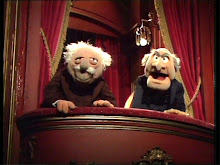
John Robert Parker Ravenscroft, OBE, known professionally as John Peel, was an English disc jockey, radio presenter and journalist. He was born in Liverpool, England on August 30, 1939 and died on October 25, 2004.
Peel promoted the more esoteric and extreme fringes of contemporary popular music for more than 30 years, becoming a national institution in the process. He did not conform to the clichés of the rock 'n' roll fast life. That was his attraction for generations of listeners; for championing music that few other DJs would touch.
He was the longest-serving of the original BBC Radio 1 DJs, broadcasting regularly from 1967 until his death. He was known for his eclectic taste in music and his honest and warm broadcasting style. He was one of the first broadcasters to play psychedelic rock, reggae and punk records on British radio, and he is widely acknowledged for promoting artists in various styles including alternative rock, pop, death metal, British hip hop and dance music.
Peel's Radio 1 shows were notable for the regular 'Peel sessions', which usually consisted of four songs recorded by an artist live in the BBC's studios, and which often provided the first major national coverage to bands that later would achieve great fame.
Peel appeared frequently on British television, as one of the presenters of Top of the Pops in the 1980s, and he provided voice-over commentary for a number of BBC programmes. He became popular with the audience of BBC Radio 4 for his Home Truths programme which ran from the 1990s, featuring unusual stories from listeners' domestic lives.
___

